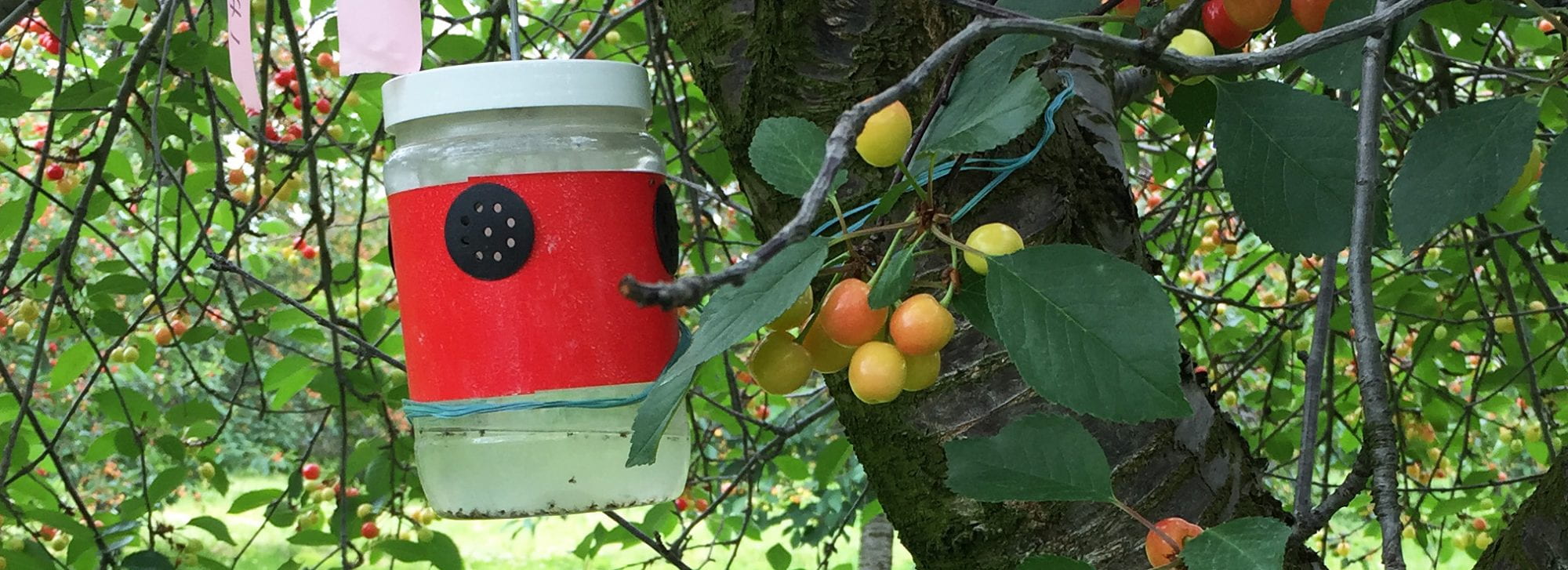Reports from blueberry growers have come in. SWD — caught in traps, found in fruit, and plantings shut down. One of these growers in the Southern Tier of NY, caught a single male in a trap on Sunday, July 23, 2017, and then,
"In a matter of 3 days my 4 traps exploded with SWD. A minimum of 3 females, the same for males, (in each trap). I have been spraying, but the weather is a problem."
For organic growers, managing SWD in blueberries this year will be nigh on impossible. It is essential to rotate insecticide active ingredients (ai), that is: not using the same active ingredient back-to-back, repeatedly. Entrust is the most efficacious organically-approved insecticide against SWD (ai spinosad), but it is essential to rotate with other ai's such as pyrethrin (Pyganic) or azadirachtin (AzaSol) or the biological Grandevo, which aren't as efficacious. The weather, with heavy and frequent rainfall, washes off the insecticides applied, making it necessary to reapply sooner.

For no spray growers, the best approach will be to invest in exclusion netting for a long term solution to protecting the crop. Even early varieties of blueberries have been hit hard in locations where SWD was found early, whereas in prior years these varieties escaped infestation. This underlines the importance of monitoring in your local area, whether with the use of SWD traps or by sampling fruit using salt flotation to detect infestation. Sampling 100 fruit allows you to quickly get a rough estimate of the percent infestation level from the number of larvae detected in those (12 larvae found/100 fruit = 12% infestation).
There is no magic number or percent infested fruit at which a field should be shut down to pickers, for a u-pick or roadside market. Be proactive with customers and make sure they refrigerate or freeze fruit soon after purchase. However, for the processing market, there may be zero tolerance for SWD-infested fruit. And for some direct market growers when infested fruit is found that signals the time to shut down.

